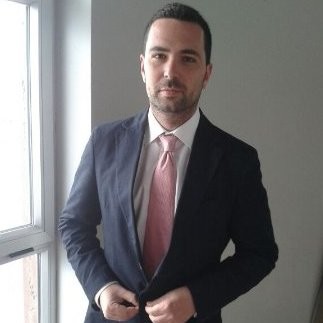
Alberto Tena
| AREA | RESEARCH GROUP | INSTITUTE |
|---|---|---|
| Science | Surfaces and Porous Materials Group (SMAP) | Institute for Sustainable Processes |
I graduated in Chemistry at the University of Valladolid. In 2007 I started my research career in the field of polymer synthesis for membrane separation processes in the department of Applied Physics at UVa. Since then, my scientific career has been marked by a constant personal and professional development in different parts of the world as well as a passion to contribute to the creation of a better world.
In 2009 I officially started my PhD developed between UVa and ICTP-CSIC in Madrid through a JAE predoc fellowship. In this case I focused on the development of membranes for CO2 capture in post-combustion processes which is applied in historically highly polluting industries such as cement or metallurgy. During my doctoral stage I had the opportunity to train and work in multiple research groups in different countries: University of Austin in Texas (USA), University of Bologna (Italy), Sincrotron in Grenoble (France), or the University Miguel Hérnandez in Elche (Spain).
In 2013, I started a postdoctoral stage for the development of new membrane materials and their processing at Helmholtz-Zentrum Geesthacht (now HereOn Geesthacht) in Geesthacht (Germany). Two years later, as a senior researcher, I led a group of 7 people working on the development of advanced materials always for gas separation or purification.
Later, in 2018, I was contacted by the European Membrane Institute (EMI) in Twente (The Netherlands) where my role was to lead projects related to materials development and/or materials processing for gas separation processes.
In 2022, I will start a new stage at UVa as a senior researcher, where my main task will be to carry all the knowledge gathered during the last 15 years, and contribute to the formation of a research line complementary to the good work that has been done in the SMAP group in the last years.
The field of gas separation processes has seen an exponential increase in turnover in recent years, and this is expected to increase even further in the coming years. The reasons for this increase are the relative simplicity of the process, the cost savings of the separation process, and its sustainability compared to other traditional processes that require higher energy demands.
As a result, separation processes using membranes have attracted the attention of numerous research groups around the world, and thus hundreds of new materials with improved separation properties are developed every year. Despite this, these new materials fail to reach the market. In the last 15 years only two new materials have made it to the gas separation membrane market. Moreover, the properties of these materials are rather moderate. The reasons for the failure of new materials to reach the market can be several; such as the loss of properties with time, or in the presence of plasticisers, or when tested under real process conditions; as well as problems in solubility of the materials or simply the lack of knowledge in the processing of these materials in the way they are used in industry (selective layers < 100 nm).
My research is based on removing the current barriers in the development of new materials by creating polymers with superior chemical and thermal resistance, as well as high processability and superior separation properties (2-3 orders of magnitude faster than currently applied commercial membranes). These materials could be used in key processes for our future such as hydrogen (H2) purification, carbon dioxide (CO2) capture or biogas (CH4) purification.
The development of membrane materials with superior properties will make it possible to use membranes in processes where it was unthinkable before, making processes more efficient and sustainable and contributing to change the world towards the model we all want.

